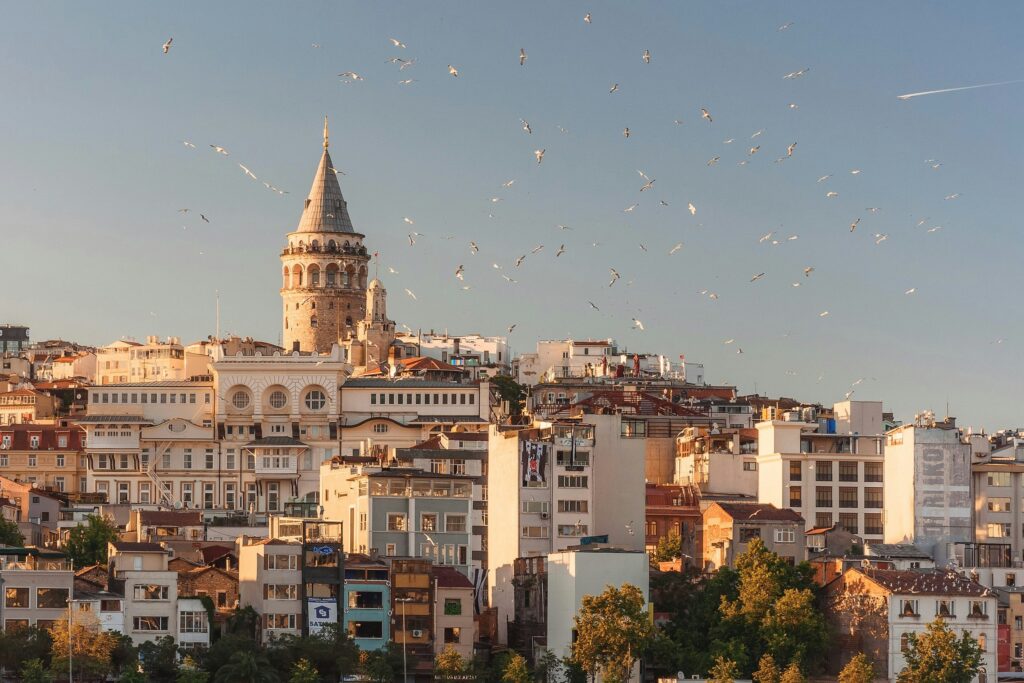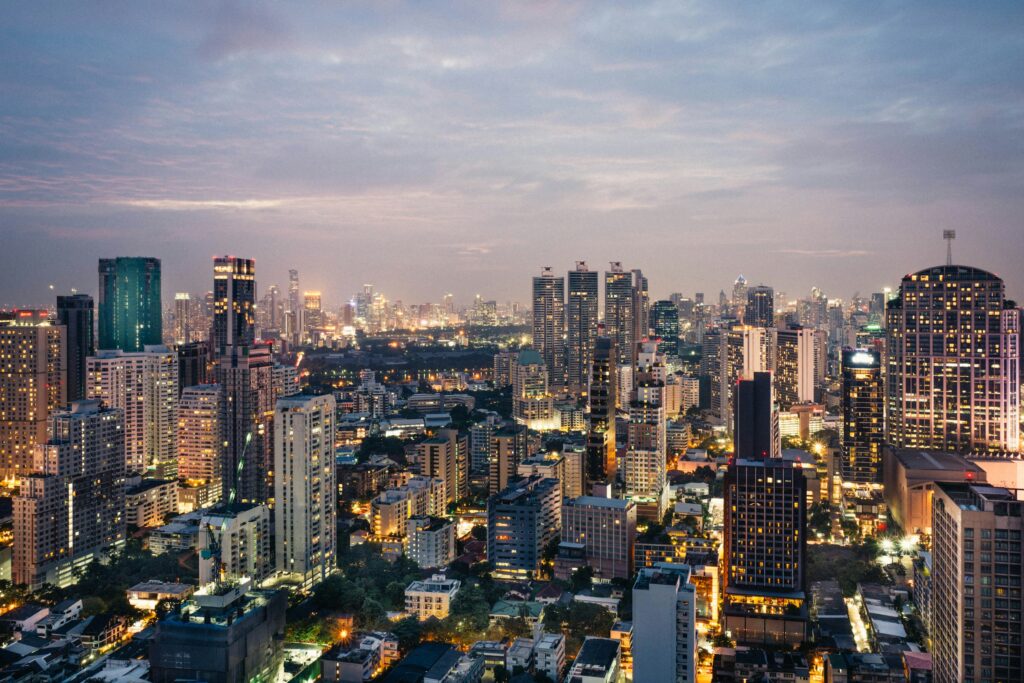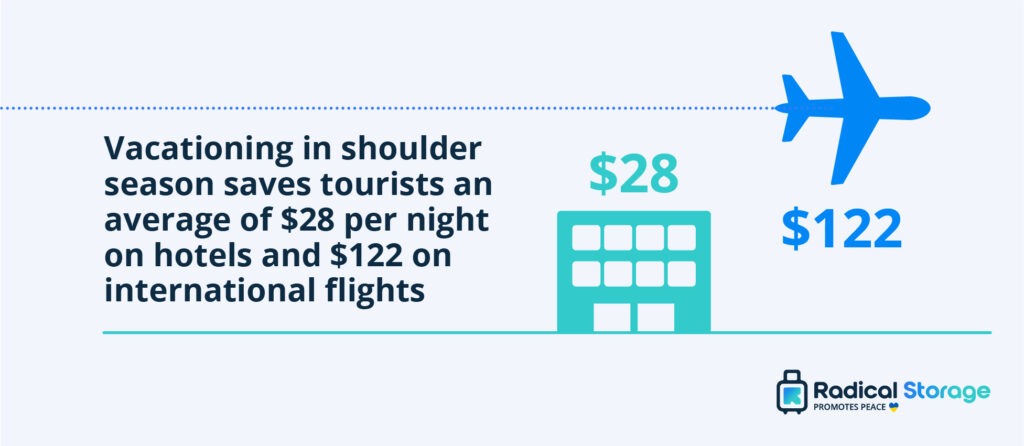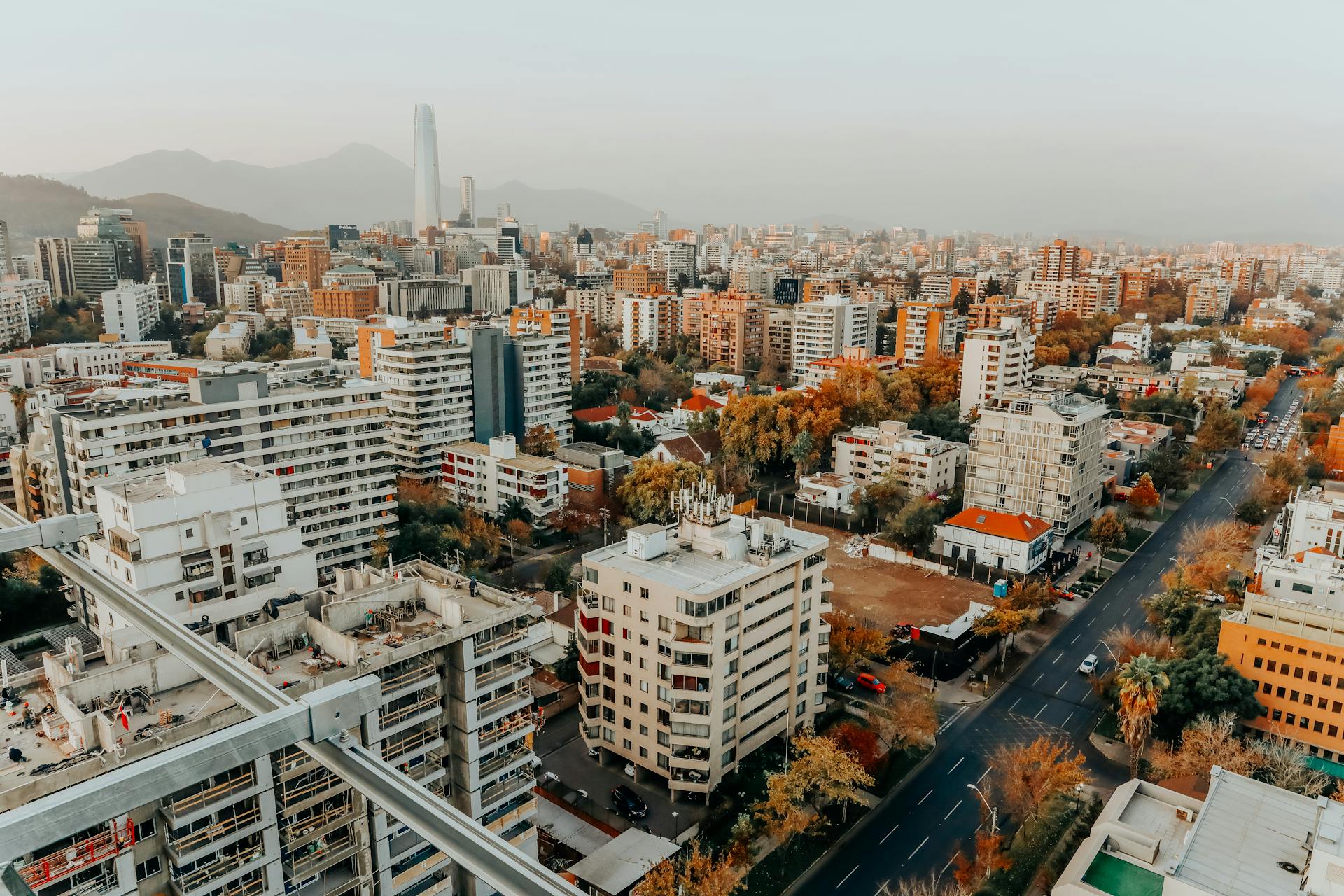Traveling around the world doesn’t come cheap. It can take years to save up your hard-earned money for your dream getaway. Yet any seasoned traveler will know that where you choose to visit can significantly affect the cost of your trip. A week’s city break in London or Paris will likely cost you significantly more on average than a week on the beach in Thailand.
To find out which cities offer the best value for money for vacationers, we’ve analyzed the average cost of a vacation in the world’s most popular cities; factoring in the cost of flights from America, hotels, and dining out at three different price points (cheap, mid-range and luxury) as well as getting excursions and leisure. This data was compared in both peak and shoulder seasons (the period between peak and off-peak) to also find out if the shoulder season discount is fact or fiction.
We then compared all this cost data against the average vacation cost in America, which we sourced via a survey of 1,088 holidaymakers. Dig into how far the average vacation budget stretches in our analysis below.
Key findings:
- Istanbul is the most affordable city break destination with an average cost for a full one-week itinerary plus return flights to the U.S. costing $3,526 per couple.
- Bangkok was the second most affordable city break with an average weekly cost per couple being $3,947.
- Considering all kinds of expenses, one survey found that the average couple would spend $4,783 on a week’s vacation, applying this here means that Americans visiting Istanbul could save $1,257, and $836 by visiting Bangkok.
- Bangkok was found to be the best city in the world for luxury 5* hotels as they cost an average of only $114 per night, with Doha in second ($118/night).
- By vacationing in shoulder season (between peak and off-peak) city break hotels are typically $28 cheaper per night, while return flights are $122 less than in peak season.
- Paris, France, had the best shoulder season discounts on hotels, which were an average of 60.3% cheaper in shoulder season compared to peak season.
How much do people spend on a vacation?
To better understand how much Americans can save on their vacation if they shop around, we decided to ask more than 1,000 travelers about their spending habits while away. Our survey found people were willing to spend $4,783 on a week’s international vacation. This figure has been used in this analysis to compare city break costs.
Looking elsewhere, Bankrate’s study on the topic found that two people could spend an average of $3,968, Forbes found that more than half of vacationers expect to spend anywhere upwards of $4,000, while ValuePenguin analyzed for a more conservative $271 per night, around $3,794 for two people for a trip. In short, the cost of a vacation can change drastically between people, but we’ve used a reasonable $4,783 for a couple to see what they can get internationally.
Cities where money stretches the furthest
Accounting for seven nights in a hotel (an average cost is taken from one to five stars), return flights (average cost from JFK and LAX), three meals a day, entertainment and excursions, and transport while there, these cities were found to offer the best value for money.

Istanbul, Türkiye, offers the best value out of all popular cities analyzed. From America, flights would cost an average of $1,029 return per person, meaning most (58%) of the $3,526 spent per couple is actually airfare, highlighting the affordable cost of food, activities and accommodation in the Eurasian city. Numbeo data highlights how luxury meals would cost an average of $33 while keeping it cheap would be less than a third of that ($10).
The table below compares the cost of these city breaks (per week per couple) against the average American vacation spend to see what people could expect to save by traveling further afield with their hard-earned dollars.
Note: costs are a blended average of peak and shoulder season hotel and flight costs.
Best international city breaks for Americans (peak season)
Looking at the data specific to peak season, Istanbul and Bangkok still offer the best rates, however, Abu Dhabi takes the third spot where Americans could save nearly $600 on a week trip. Abu Dhabi hosts the third largest mosque in the world for some culture, while tourists can also explore the desert with sandboarding and jeep safaris.
Best international city breaks for Americans (shoulder season)
When looking at shoulder season (spring/autumn), Poland’s capital, Warsaw, offers excellent value for money compared to the busy summer period. The capital has a wealth of history via museums and walking tours, as well as a thirving foodie scene. For those exploring wider Poland, Warsaw offers excellent train links to anywhere in the country such as other popular Polish city breaks like Gdansk and Kraków.
City breaks with the most affordable luxury hotels
When looking at only luxury hotels in popular cities around the world, Bangkok, Thailand, offers the best value for five-star accommodation averaging $114 a night, closely followed by Doha, the Capital of Qatar, and Shanghai. Five-star hotels typically offer an unrivaled level of luxury and service that you won’t get anywhere else. This may be a new experience for many vacationers due to the lower cost in cities like Bangkok, but it’s worth it.

One thing this analysis found is that luxury hotels are also very much open to offering discounts for travelers visiting outside of peak season, meaning dollars saved could be spent on upgraded flights, or staying even longer in the destination.
What is shoulder season and is it always cheaper?
Shoulder season is the period before or after peak season but not yet the off-season. For example, many European destinations have a very busy summer (July/August) but May, June, September, and October may be considered shoulder season (it varies per destination), while January could be considered the off-season or low season. Visiting destinations in shoulder season usually means lower costs and lower crowds, while still keeping good enough weather for tourism.

On average, hotels were $28 cheaper per night during shoulder seasons globally, while return flights tended to secure a discount of $122 per person. Across a week for two people you could be saving hundreds of dollars just for using your PTO wisely.
The full list of shoulder and peak months analyzed in this research can be seen in the methodology at the bottom of the page.
Cities with the best shoulder season discounts on flights
Looking at flights specifically, we can see that Budapest, Hungary had the largest percentage discount (56.6%) in shoulder season compared to peak season for flights. These flight prices were based on average return flight prices from Google Flights from both Los Angeles’ LAX and New York City’s JFK airports.
As the average flight costs show, hundreds of dollars could be saved by choosing to visit in less popular months, in some cases like Taipei, almost $1,800 dollars could be saved between two people flying out in fall rather than summer.
Cities with the best shoulder season discounts on hotels
August was used as a peak month for Paris for this analysis, specifically a couple of weeks after the Olympic Games to avoid that impacting costs. Compared to the quieter and cooler October, vacationers visiting the City of Love could be paying $344 more per night for the benefit of visiting in the summer. Our recommendations are September and April as two of the best months to visit Paris.
After Paris, Warsaw had a 52.4% discount on nightly hotel rates in the shoulder season, followed by the picturesque Kyoto in Japan with 45.6%.
While shoulder season is often a good bet to get cheaper hotel rates, be sure to check for sports events, concerts, or local public holidays which could impact the price regardless of the time of year.
It’s also worth noting that for hotels, the shoulder season discount is going to be smaller the lower the quality of your accommodation. A hostel is still going to be cheaper in shoulder months but it may be a savings of $10 rather than $100.
Methodology
We scraped data from Booking.com for hotels on February 24th-28th analyzing a total of 12,472 hotel rates. On the same date, Google flights average price for flights across all airlines they track on specific routes were reviewed. Hotels and flights were tracked in peak and shoulder months as shown below.
The list of cities analyzed came from Euromonitor’s analysis of the 100 most visited cities, with US cities excluded to make this an analysis of international destinations for US vacationers.
Shoulder season and peak season months analyzed can be seen in the following table. Shoulder season and peak season can vary but various travel guides were consulted to get commonly associated months for each city.
Food, entertainment, and transport costs for each city were calculated as the following:
- Transport costs accounted for seven rides/one-way tickets on local transport and 20km of taxi rides + starting fee from Numbeo data.
- Food costs came from Numbeo and are an average of 14 meals (breakfast assumed included with hotel) across cheap, medium, and luxury prices. Example from Numbeo for Paris here.
- Average entertainment ticket from Budget Your Trip’s daily cost for 7 days, which “ includes fees paid for admission tickets to museums and attractions, day tours, and other sightseeing expenses.” Example for Paris here.
The accompanying survey data was collected in October 2023 of 1,088 Americans who had been on vacations in the previous 12 months asking them questions about how much they typically spend.

This work is licensed under a Creative Commons Attribution-ShareAlike 4.0 International License.

